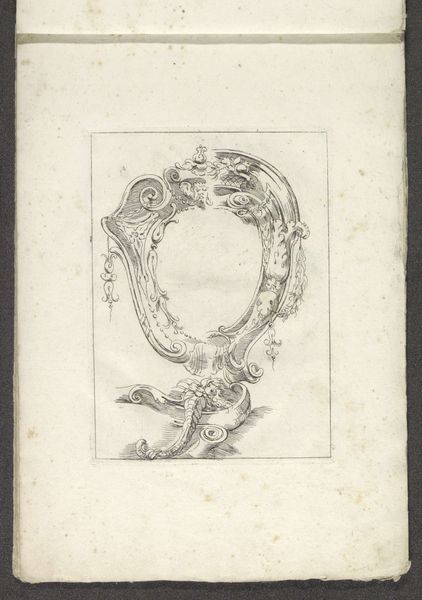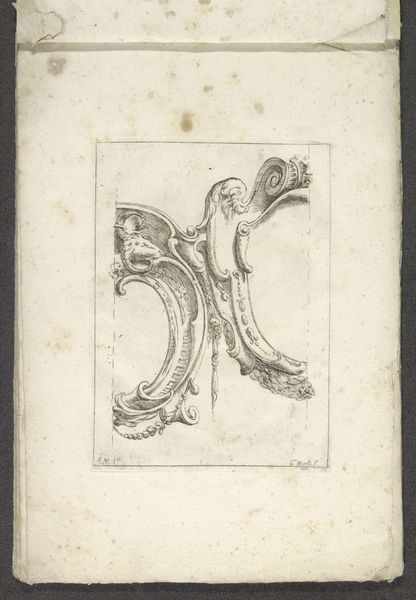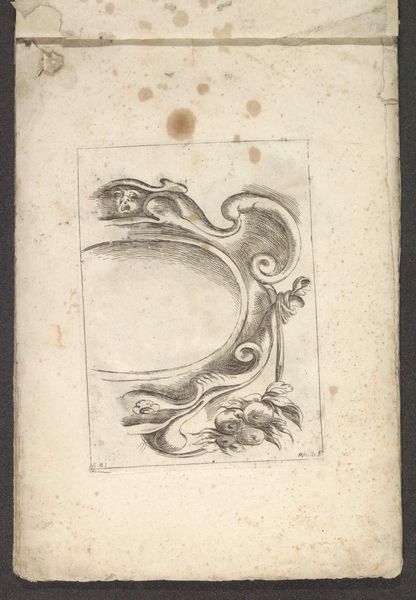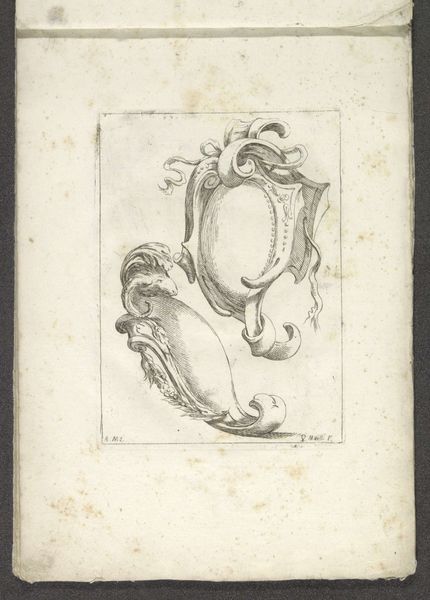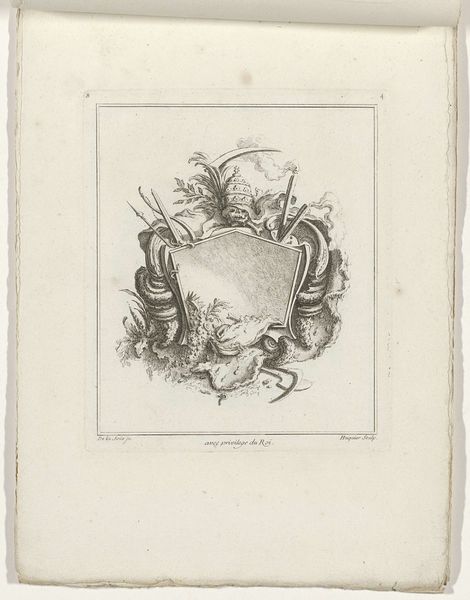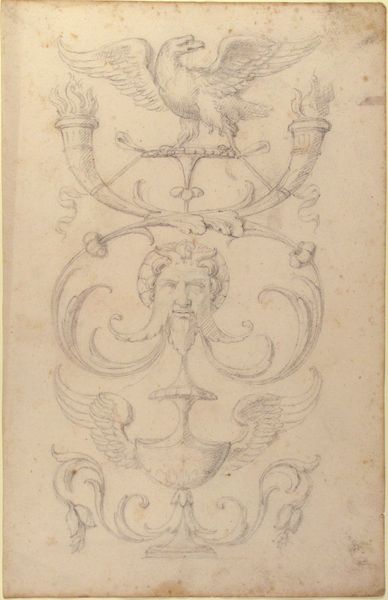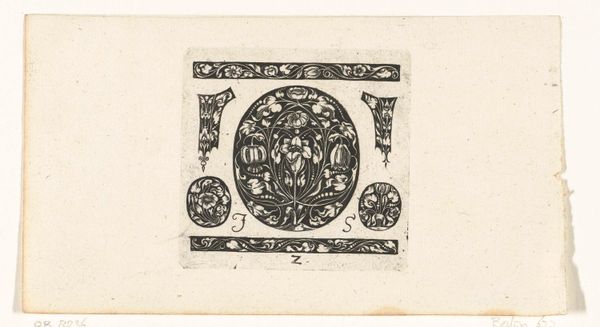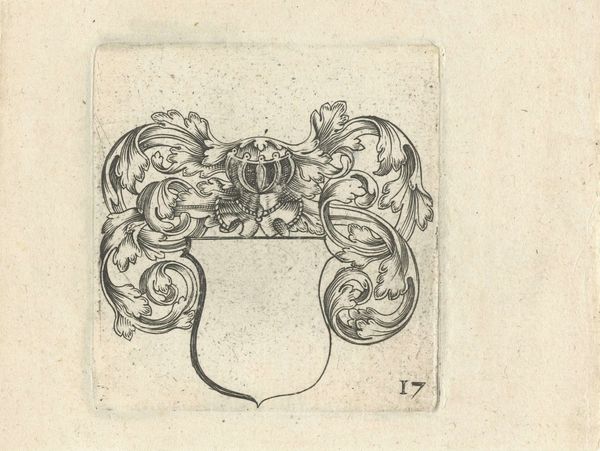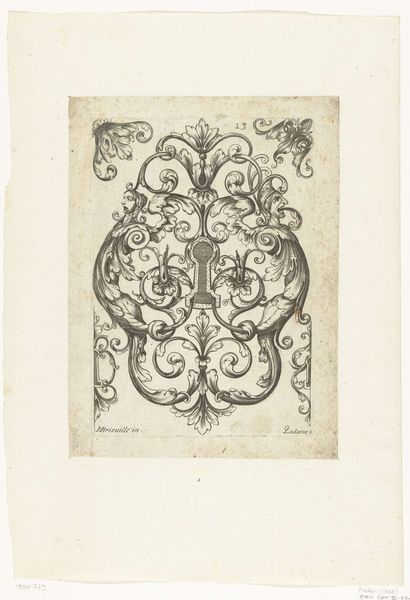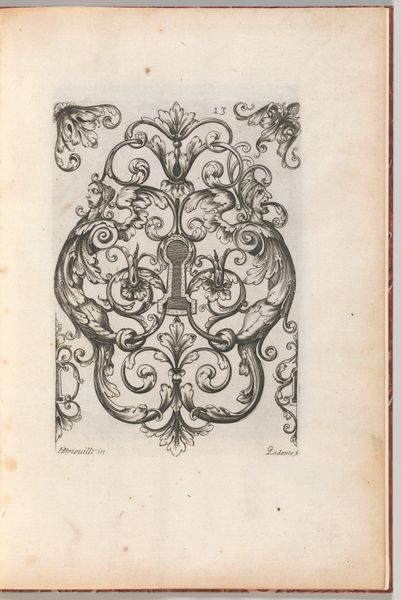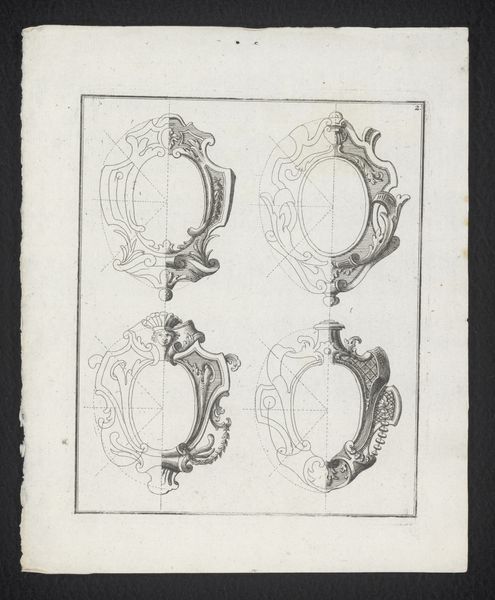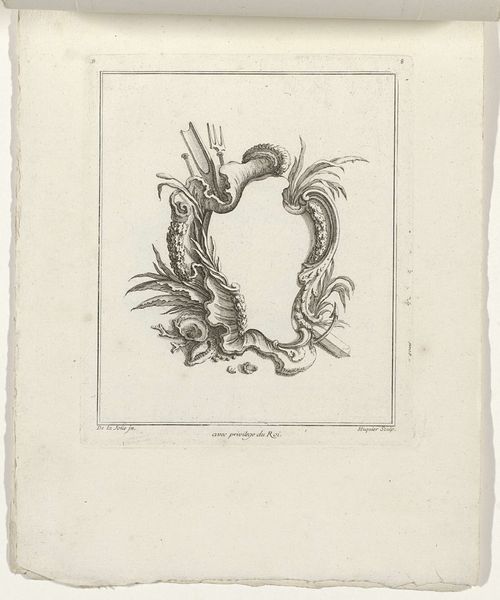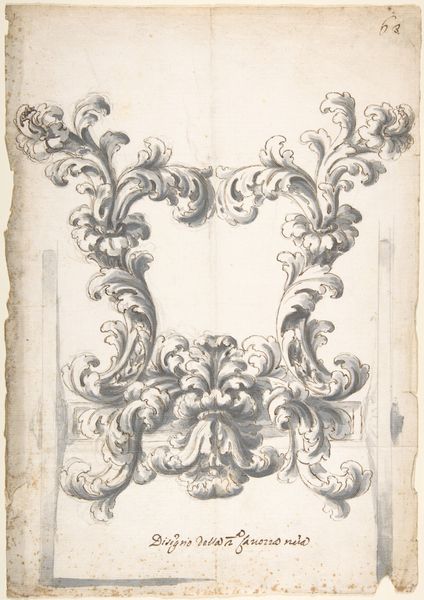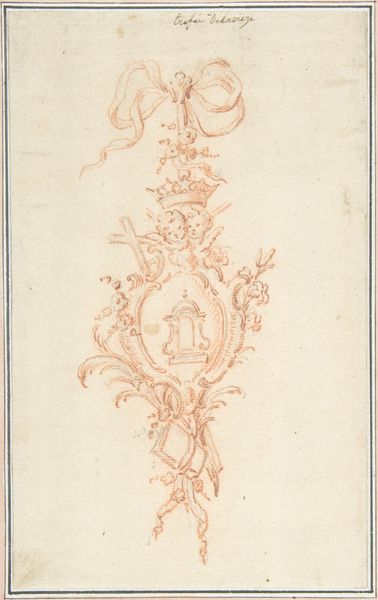
drawing, ornament, ink
#
drawing
#
ornament
#
toned paper
#
light pencil work
#
baroque
#
pen sketch
#
pencil sketch
#
form
#
personal sketchbook
#
ink
#
ink drawing experimentation
#
pen-ink sketch
#
line
#
pen work
#
sketchbook drawing
#
sketchbook art
Dimensions: height 187 mm, width 137 mm
Copyright: Rijks Museum: Open Domain
Editor: Here we have Giuseppe Maria Mitelli’s “Cartouche en bladrank,” made sometime between 1644 and 1718. It's a drawing using ink on toned paper. The Baroque style gives it this elaborate, almost theatrical feel. What strikes me most is how delicate the linework is, yet the overall composition feels so grand. How do you interpret this work within its historical context? Curator: Considering the cultural landscape, these drawings were likely not intended as standalone artworks, but rather as designs influencing a wider cultural production. During the Baroque period, there was a huge demand for ornamental designs – influencing architecture, furniture, even garden layouts. Editor: So, it’s like Mitelli was participating in a design ecosystem? Curator: Exactly. Look at the 'cartouche' itself. Cartouches weren't merely decorations. They were frameworks, intended to hold text, heraldry, or portraits— carriers of power and status. Mitelli's drawing, made using ink, can be viewed in a way a form of communication during the Baroque period. They reinforced societal hierarchies, promoted dynastic images and articulated cultural aspirations in public and private spaces. Editor: So, beyond pure aesthetics, there was a real function driving this design? Curator: Precisely! These ornamented sketches tell us something significant about patronage and societal status at that time. Who decides what is "good" design? The market, and whoever controlled it. Editor: That makes you wonder, doesn't it? Thanks. I never considered design with such an important power dynamic. Curator: Absolutely, art rarely exists in a vacuum. Considering its place within society enriches our appreciation and comprehension of its many layers.
Comments
No comments
Be the first to comment and join the conversation on the ultimate creative platform.
